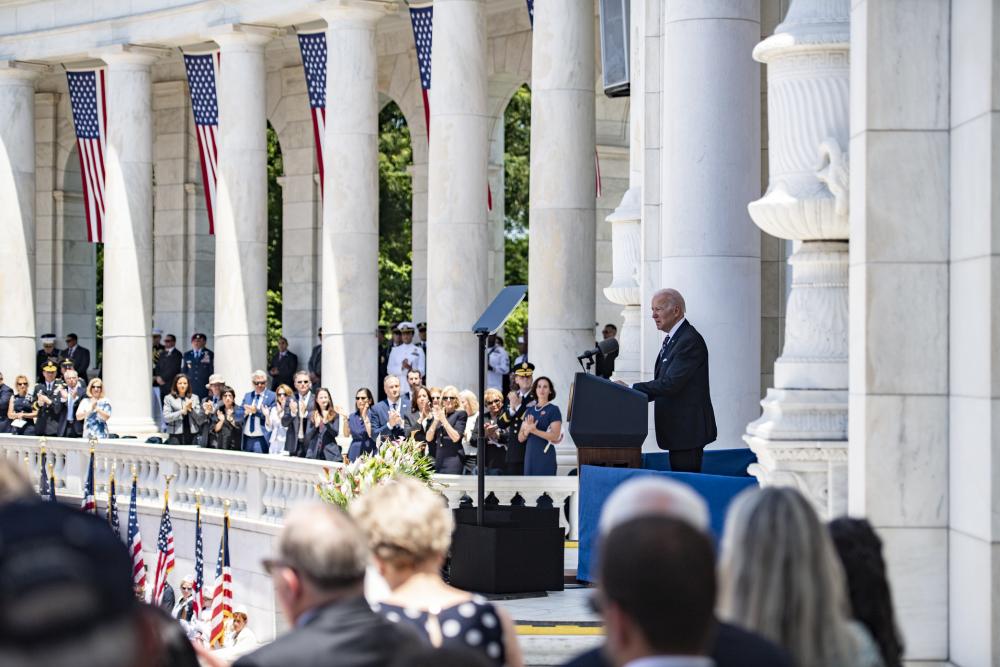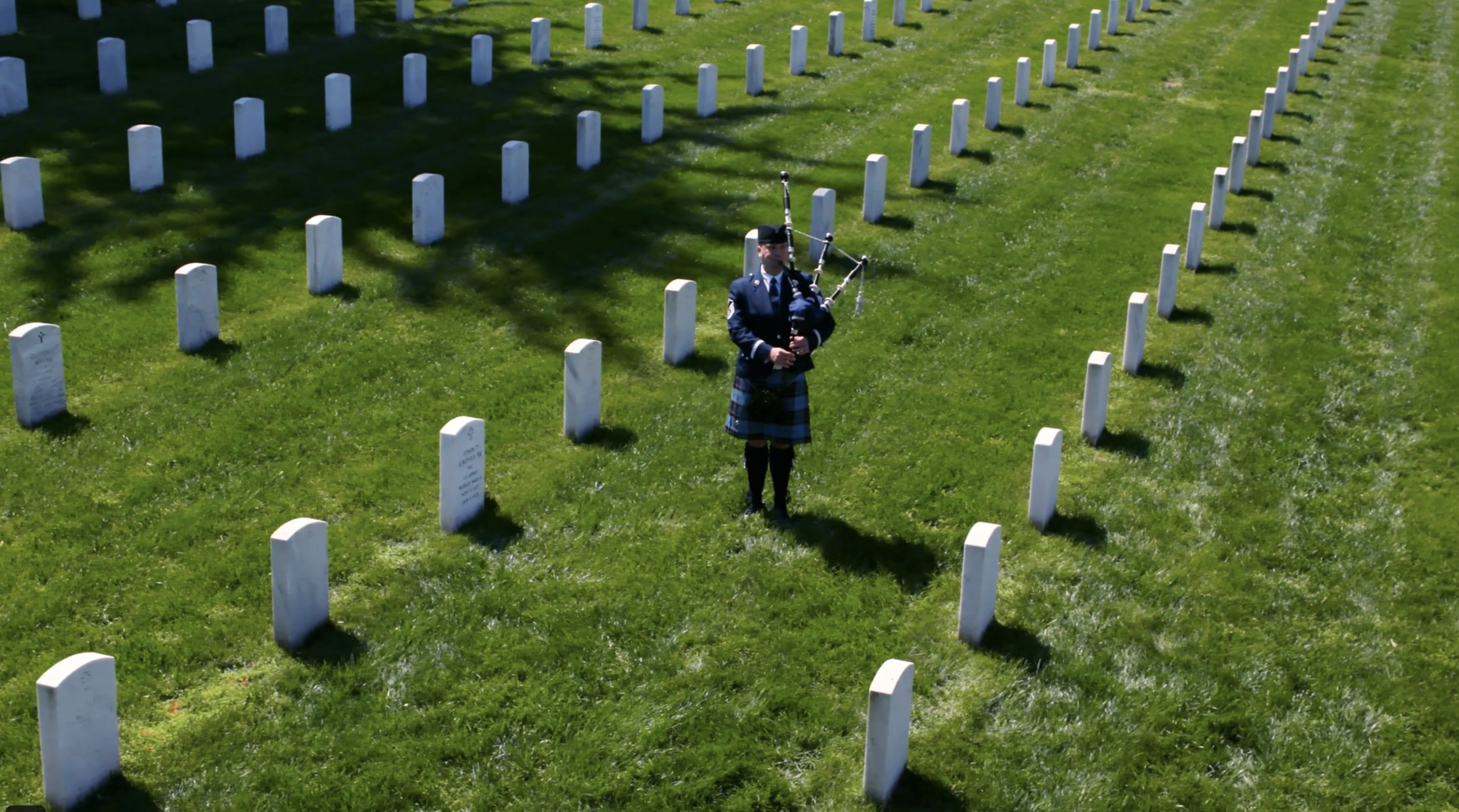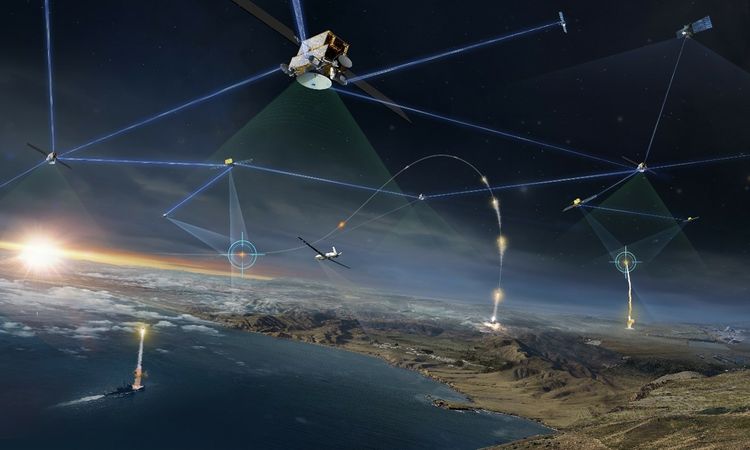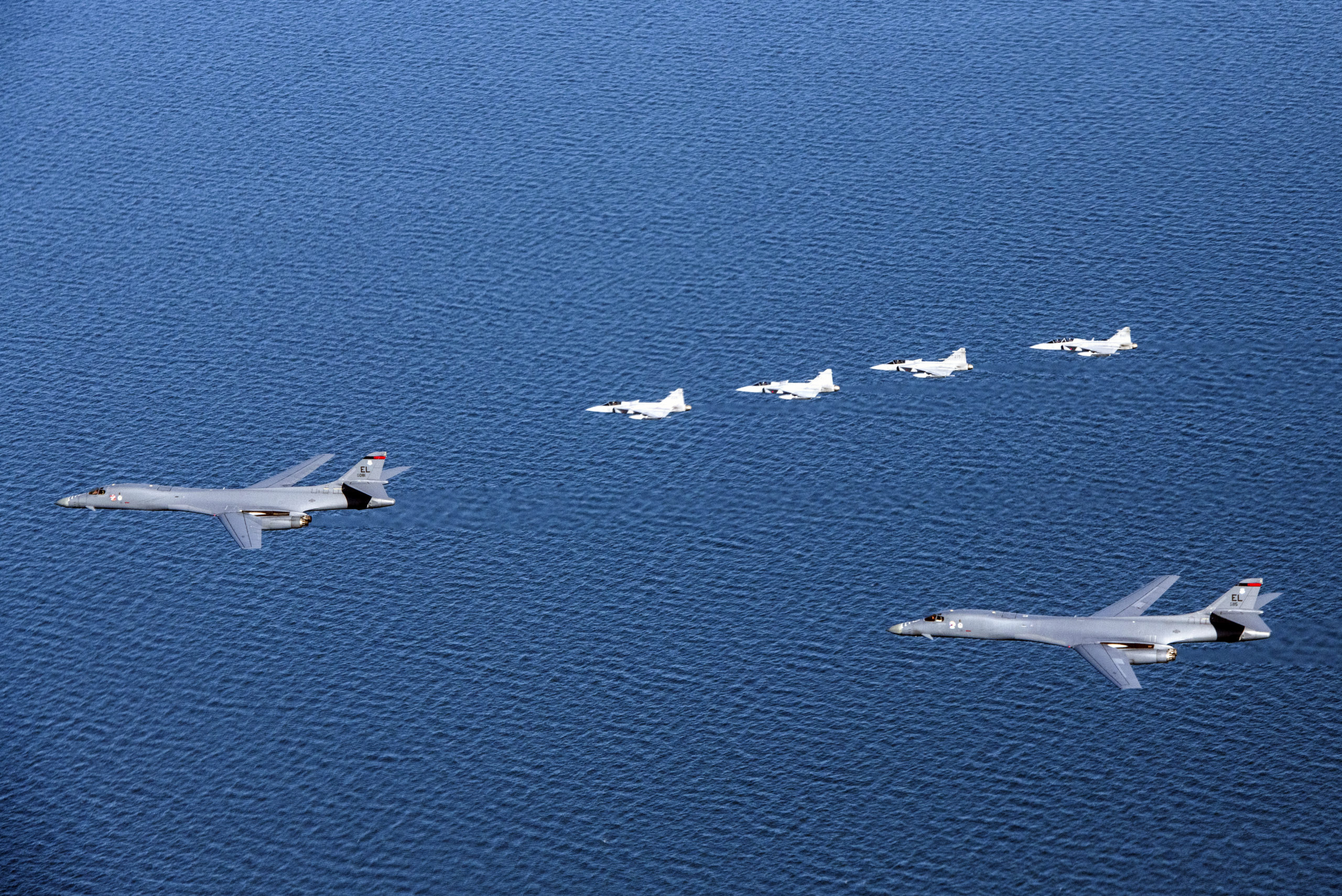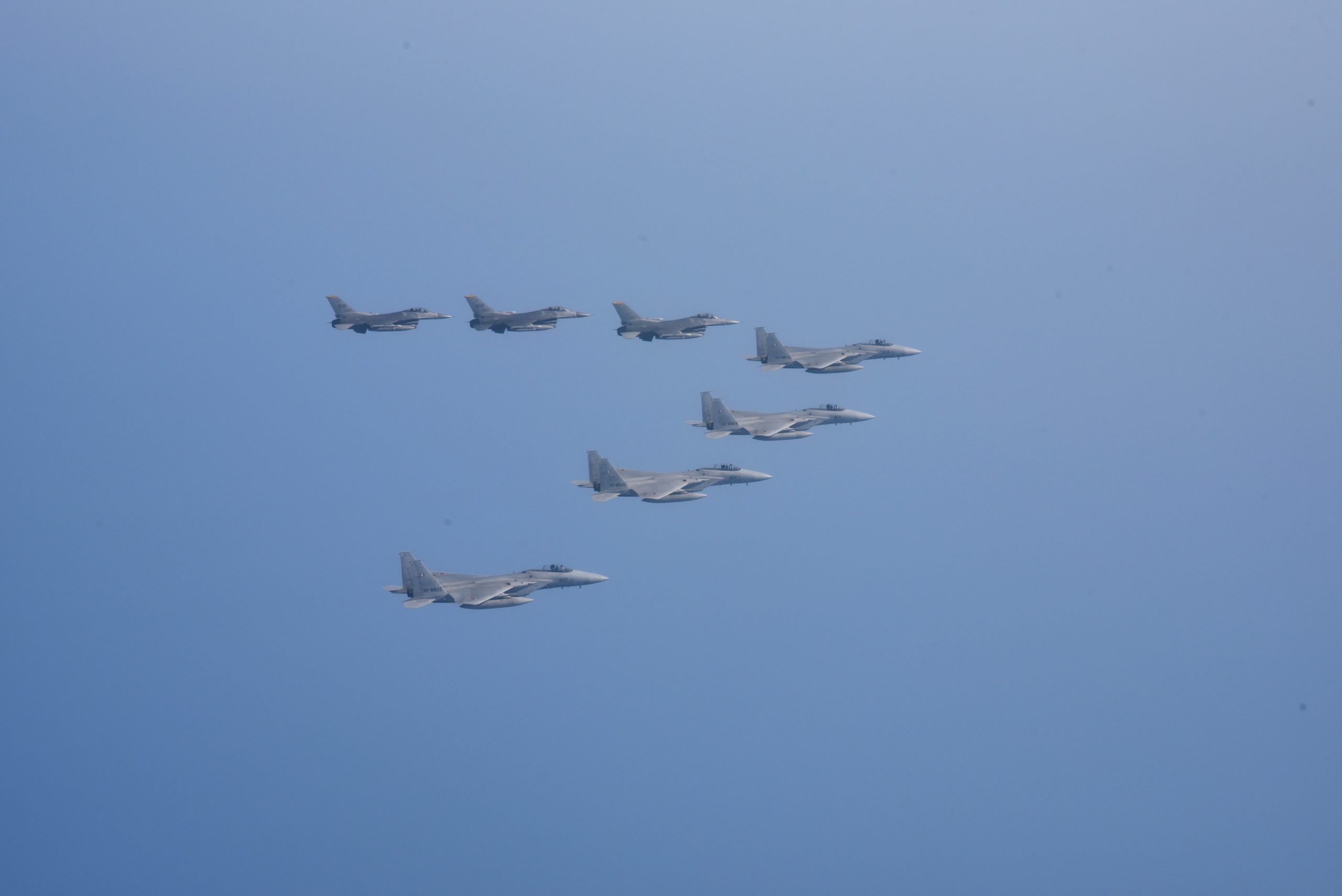In a Memorial Day address at Arlington Cemetery, Defense Secretary Lloyd J. Austin III drew parallels from veterans fallen from America’s longest war to Ukrainian soldiers fighting against Russia today to preserve democracy as Ukraine’s request for multiple launch rocket systems (MLRS) remains unheeded.
“In the 21st century, the security of the world hinges again on the survival and success of the American experiment,” Austin said alongside President Joe Biden and members of the Joint Chiefs of Staff.
“Today, on the battlefields of Ukraine, the world again sees the power of democratic citizens and soldiers to defy tyranny, cruelty, and oppression,” Austin added. “Their freedom is under attack.”
Austin honored the 2,461 Americans who died in Afghanistan before describing an ongoing global fight to preserve democracy and maintain the international order that has prevailed since World War II. The Defense Secretary highlighted the importance of close cooperation with partners and allies to preserve democracy, saying the United States would rise to meet the challenge.
Biden, likewise, said the Russia-Ukraine war was “between democracy and autocracy.”
“Today, in the perennial struggle for democracy and freedom, Ukraine and its people are on the frontlines fighting to save their nation,” Biden said. “But their fight is part of a larger fight that unites all people. It is a fight that so many of the patriots, whose eternal rest is here in these hallowed grounds, were part of.”
Yet, the United States is again facing a limit to how far it will go to meet Ukraine’s challenges against Russia without escalation.
Ukraine recently pleaded for MLRS—powerful rockets that fire farther than the U.S. howitzers now on the frontlines in Eastern Ukraine.
U.S. officials appear reluctant to give Ukraine systems that can reach inside Russian territory after Ukraine has made several cross-border attacks on the fuel depots reinforcing Russian forces as they solidify gains in the Donbas.
“We’re not going to send to Ukraine rocket systems that can strike into Russia,” Biden said May 30 on the South Lawn of the White House.
The Pentagon, meanwhile, said May 27 that MLRS are under consideration.
“I won’t get ahead of decisions that haven’t been made yet, but we are in constant communication with them,” Pentagon spokesman John F. Kirby said at his final Defense Department briefing before he takes an assistant press job covering national security issues at the White House.
“We knew when Russia decided to focus on the eastern part of the country and that Donbas region that it was going to be an artillery, a long-range-fires kind of fight,” he said. “It has proven to be that.”
Meanwhile, Russia is closing off the Donbas region and the new weapons, if approved, may not arrive in time.
Over the Memorial Day weekend, Russian forces entered Severodonetsk, the farthest eastern city still held by Ukraine. The move would bring Russia closer to fully capturing Luhansk province after artillery pummeled the city for weeks. A successful capture may also pin down Ukrainian forces operating in the region, and free up Russia to advance elsewhere, argued the Institute for the Study of War.
Russia now controls a land corridor to Crimea, but it has not moved on Ukraine’s vital port city of Odesa, although missile attacks and a naval blockade of commercial shipping continue.
A $40 billion assistance package passed by Congress in May gives Biden the authority to make an 11th presidential drawdown of key weapons from U.S. stocks, often delivered to Ukraine’s frontlines in a matter of days.
Kirby refused to outline what will be in the next package, but he said it will be tailored to Ukraine’s current battlefield needs.
“It’s not a hold-up here,” Kirby said when asked if the Defense Department was preventing the delivery of MLRS. “I understand that they have been asking for the assistance for a long time. And we have been talking to them. And I’m just not going to get ahead of where the decisions are.”
